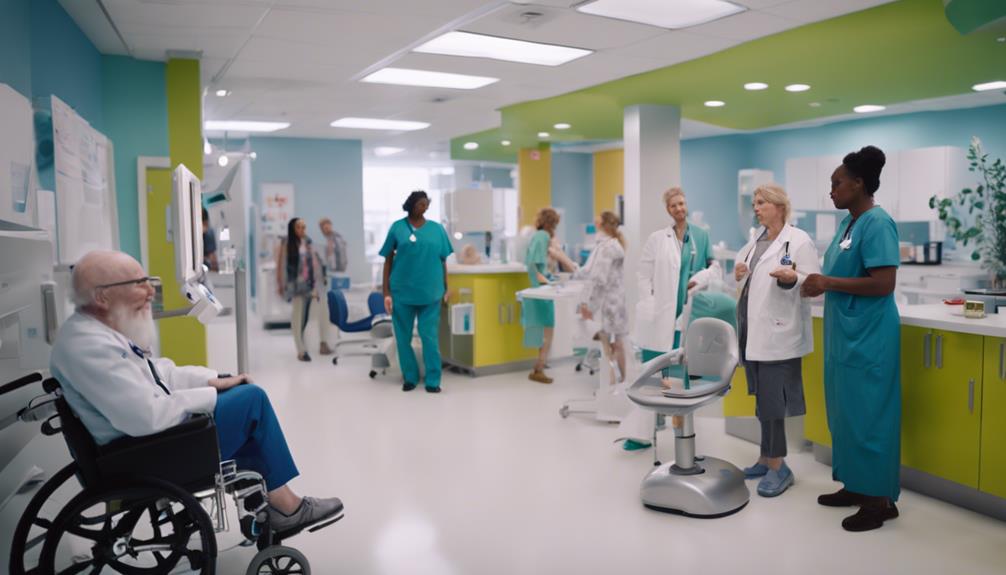What is SoonerCare?
SoonerCare is Oklahoma’s Medicaid program designed to provide health coverage for eligible individuals and families. It plays a crucial role in ensuring that low-income residents receive the necessary medical services without facing financial burdens. SoonerCare covers a variety of health services, including routine check-ups, hospital visits, prescription medications, and preventive care. Understanding SoonerCare eligibility is essential for those who might benefit from this program, as it helps ensure that they can access the care they need.
Who is Eligible for SoonerCare?
To qualify for SoonerCare, applicants must meet specific criteria based on income, family size, and other factors. Generally, SoonerCare eligibility extends to children, pregnant women, and low-income adults. For instance, children under the age of 19 typically qualify if their family’s income is at or below 205% of the federal poverty level (FPL). Pregnant women can qualify with income levels up to 185% of the FPL. Adults aged 19-64 must meet the income criteria set by the state, which is currently at or below 138% of the FPL. Understanding these parameters is crucial for individuals seeking assistance through SoonerCare.
Income Guidelines for SoonerCare Eligibility
The income guidelines for SoonerCare eligibility are updated annually and are based on the federal poverty level. As of 2023, a single individual can qualify for SoonerCare if their monthly income is at or below $1,564. For a family of four, the income limit is approximately $3,226. It’s important to note that certain deductions or exemptions may apply, which can affect the total income calculation. Potential applicants should review their financial situation carefully and consult the latest income guidelines to determine their eligibility for SoonerCare.
How to Apply for SoonerCare
Applying for SoonerCare is a straightforward process, which can be done online, by mail, or in person. The Oklahoma Human Services (OKDHS) website provides an online application portal where applicants can fill out the necessary forms and provide required documentation. Alternatively, individuals can download paper applications, fill them out, and mail them to the appropriate OKDHS office. For those who prefer personal assistance, visiting a local OKDHS office is also an option. It is crucial to gather all necessary documents, such as proof of income, residency, and family size, to expedite the application process.
Documentation Required for SoonerCare Eligibility
When applying for SoonerCare, providing the right documentation is essential to prove eligibility. Applicants will need to submit proof of identity, which could include a driver’s license or state ID, social security numbers for all household members, and verification of income, such as pay stubs or tax returns. Additionally, proof of residency, like utility bills or rental agreements, may also be required. Ensuring that all documentation is accurate and complete can help avoid delays in the application process and facilitate a smoother approval experience.
Renewing Your SoonerCare Benefits
Once enrolled in SoonerCare, beneficiaries must renew their eligibility periodically to continue receiving benefits. The renewal process generally occurs annually, and the Oklahoma Human Services will send out a renewal form to be completed. Beneficiaries must provide updated income and household information to determine ongoing eligibility. It’s essential to respond promptly to renewal requests to avoid any interruption in coverage. Failure to renew on time could result in the loss of benefits, highlighting the importance of keeping track of renewal dates and requirements.
Special Considerations for SoonerCare Eligibility
Certain populations may have special considerations when it comes to SoonerCare eligibility. For example, individuals with disabilities may qualify for additional coverage options through the program. Additionally, there are specific provisions for veterans and those needing long-term care services. Understanding these nuances can help applicants navigate the SoonerCare system effectively and ensure they receive the most appropriate care. Consulting with a SoonerCare representative or using resources available on the OKDHS website can provide valuable insights into these special circumstances.
Benefits of SoonerCare for Eligible Oklahomans
The benefits of SoonerCare extend far beyond basic medical coverage. Eligible individuals gain access to a comprehensive range of services, including mental health care, preventive screenings, and dental services. SoonerCare also provides support for managing chronic diseases, maternal health services, and substance abuse treatments. By removing financial barriers to healthcare, SoonerCare plays a vital role in improving the overall health and well-being of Oklahomans. Understanding these benefits can motivate eligible individuals to apply and utilize the resources available through the program.
In conclusion, understanding SoonerCare eligibility is crucial for residents of Oklahoma who may benefit from this essential health coverage program. By familiarizing themselves with the eligibility criteria, application process, and available benefits, individuals can take proactive steps toward accessing the healthcare services they need. Whether you’re applying for the first time or renewing your benefits, being informed about SoonerCare can lead to better health outcomes and financial stability. For more detailed information, always refer to the official Oklahoma Human Services website or contact their offices directly.Teladoc Medicaid
